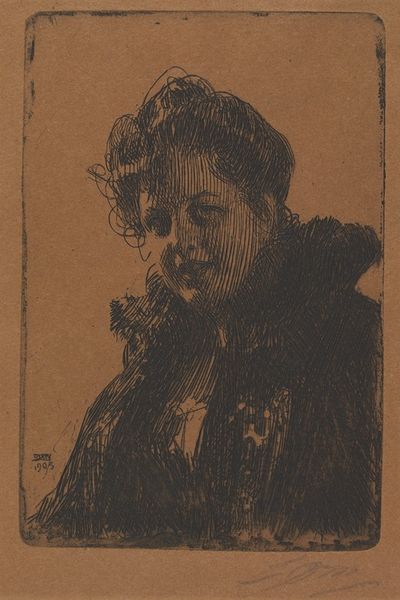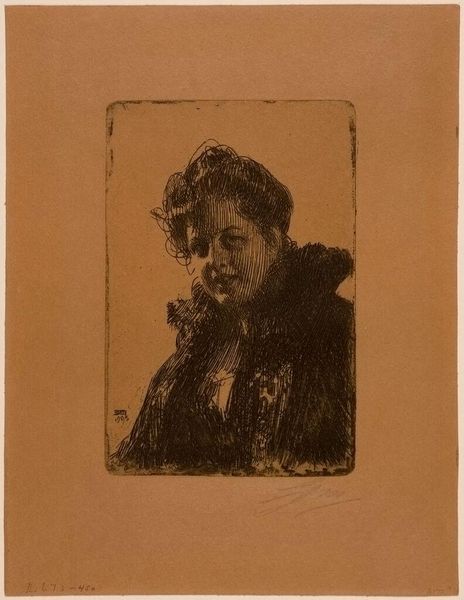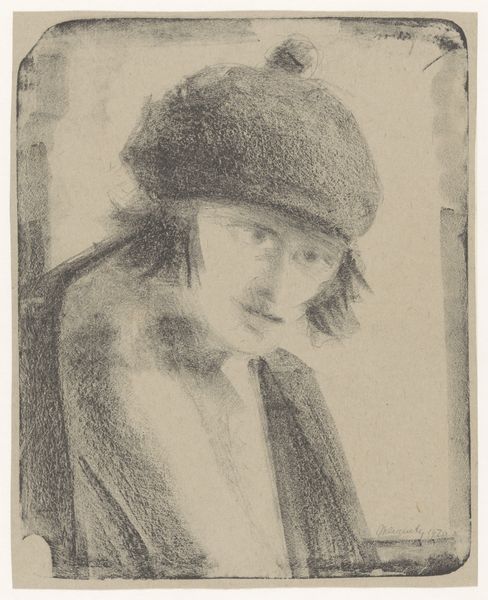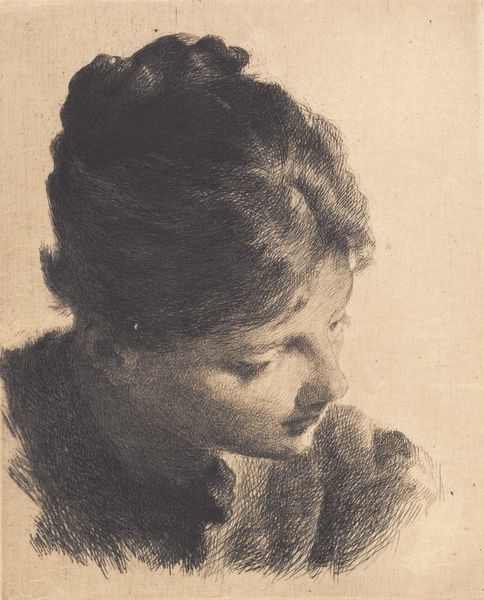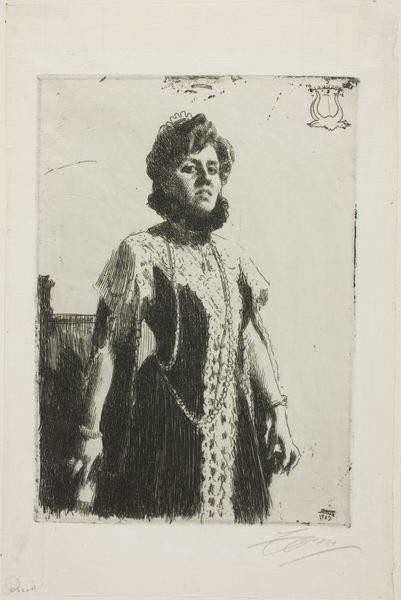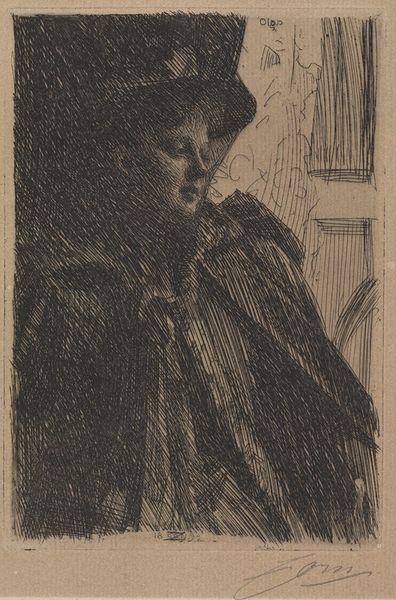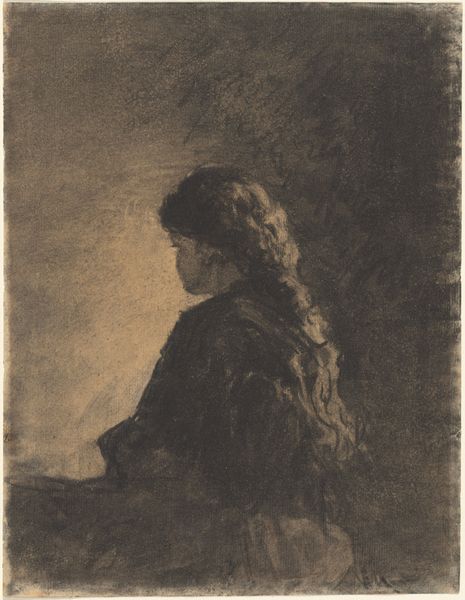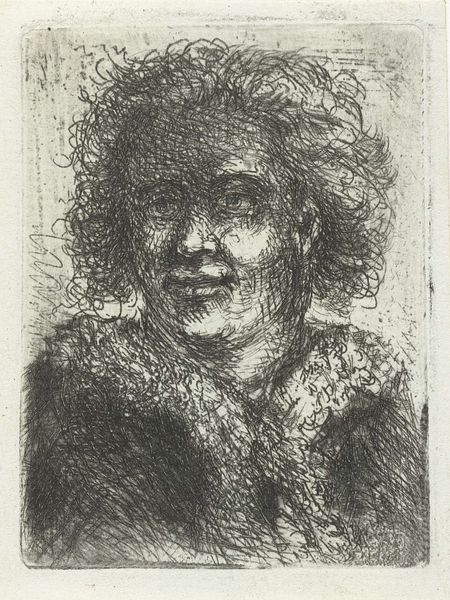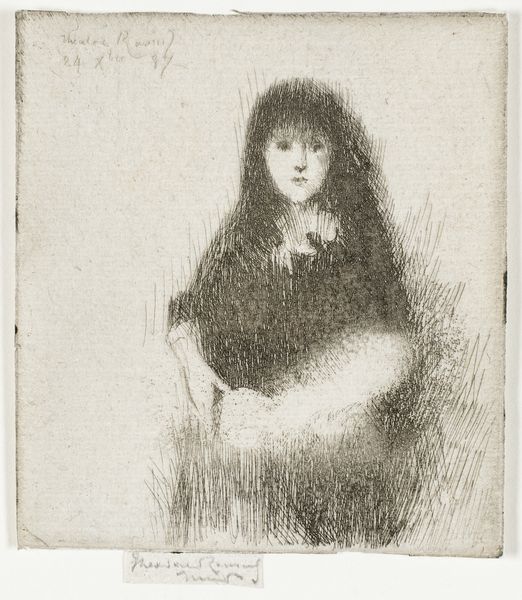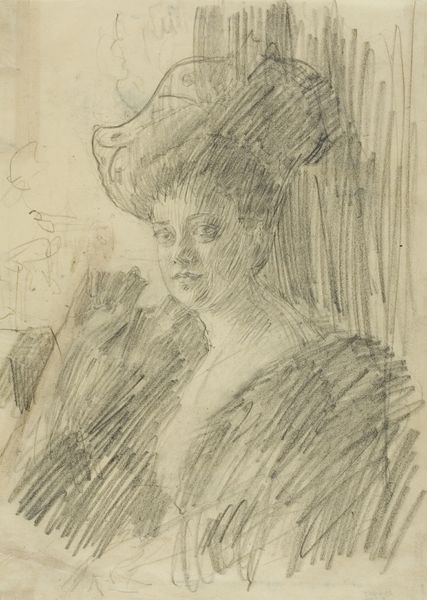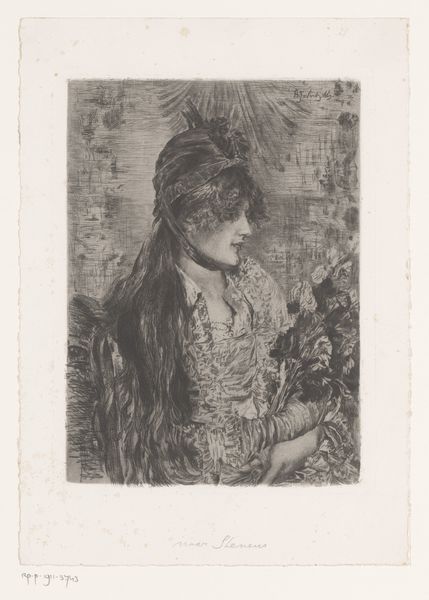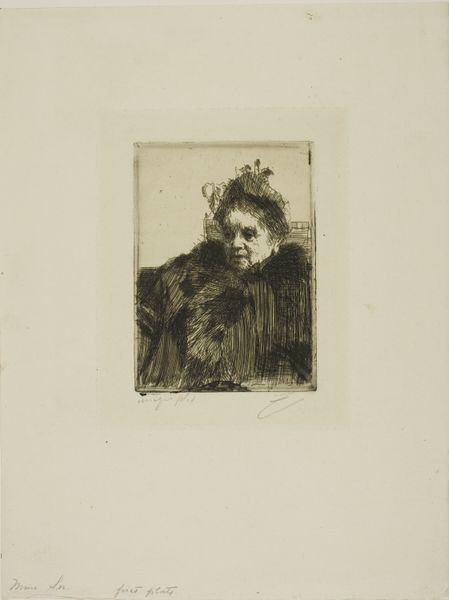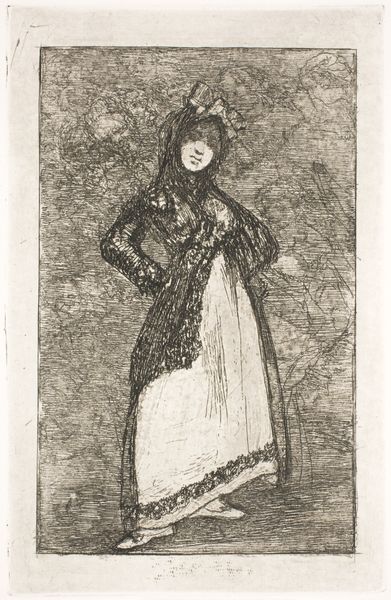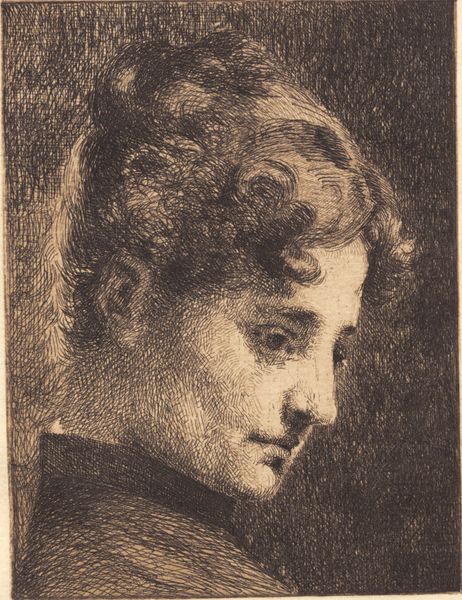
print, etching
#
portrait
# print
#
etching
#
figuration
#
line
#
realism
Copyright: National Gallery of Art: CC0 1.0
Editor: Here we have Anders Zorn's 1903 etching, "Mrs. Granberg." The linear style almost feels…unfinished, but creates a very intimate portrayal. How do you interpret this work in the context of turn-of-the-century portraiture? Curator: It's fascinating how Zorn uses the etching medium to disrupt traditional notions of bourgeois portraiture. Look at how the dense lines almost obscure Mrs. Granberg's features, denying the viewer easy access to her identity. Do you think this challenges the established power dynamic between artist and subject, or perhaps between viewer and viewed? Editor: That's an interesting point! It’s less about idealizing beauty and more about… capturing a certain presence, maybe? I’m used to seeing idealized portraits of women in this period. Curator: Exactly. The “presence” is key. And presence isn’t neutral; it's politically charged. By not offering a smooth, polished image, Zorn resists the objectification inherent in much portraiture. He draws attention to the constructed nature of identity itself. What does that tell us about the artist’s understanding of gender and representation at that time? Editor: So it's not just a portrait of a woman, but a statement about how women were—or weren't—represented? Curator: Precisely. And further, how the rise of industrialization and evolving social structures may have been shifting those representations. Consider also the nuances of her clothing – it whispers wealth, but avoids ostentation. What's the tension there? Editor: It makes me reconsider my initial reaction. I was seeing a portrait; now I'm seeing a commentary on social status, representation, and maybe even a challenge to artistic norms. Curator: And that’s the beauty of engaging with art from a critical perspective. It invites us to continually question the assumptions we bring to our viewing experience and examine our cultural history. Editor: I’ll definitely be looking at portraits differently now. Thanks for helping me see beyond the surface!
Comments
No comments
Be the first to comment and join the conversation on the ultimate creative platform.
